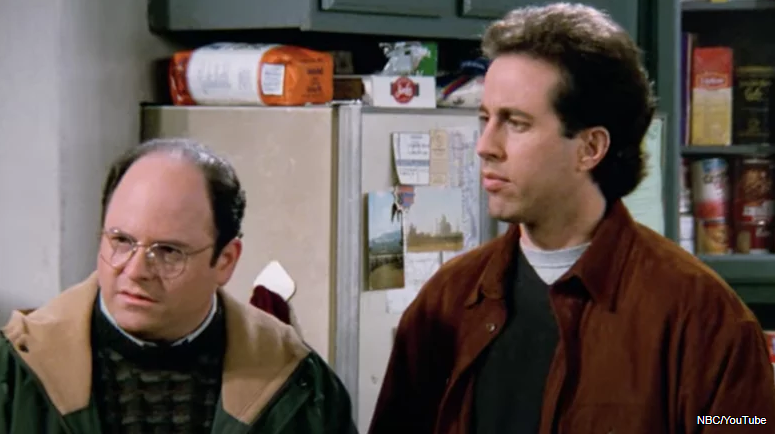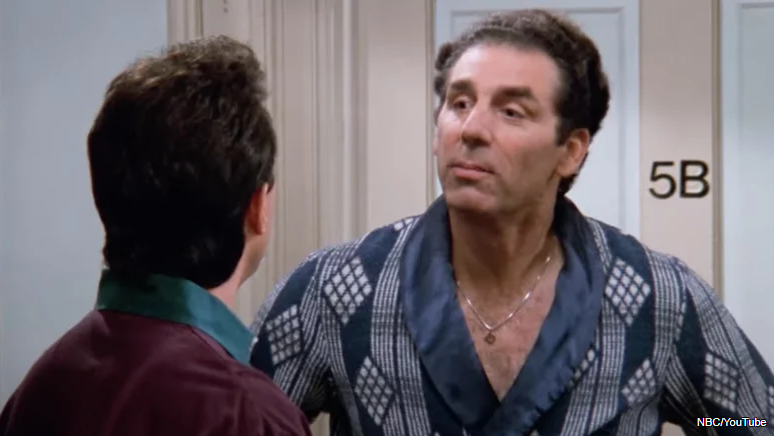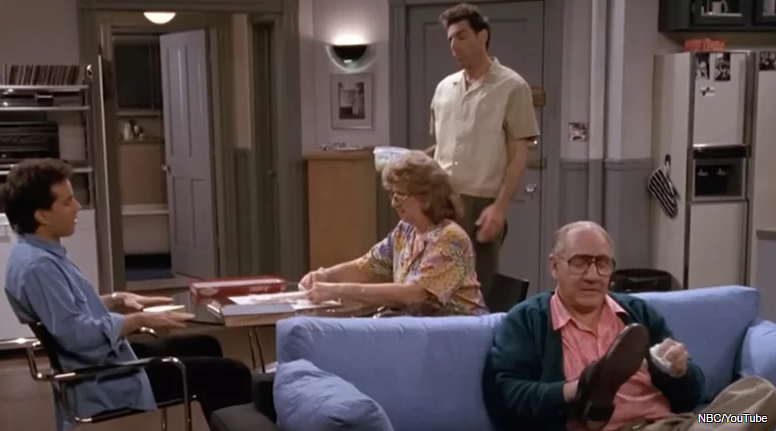Seinfeld Fans Overwhelmingly Agree On The Show’s Most Moral Character
Measuring the amount of moral fiber the characters from our favorite shows possess has been a topic that has dominated subreddits and various other internet forums since the dawn of the world wide web. Though the storylines will often place these folks in the most unlikely scenarios, how they react to them can arguably be used to determine what personality type they possess and whether or not they are overall decent human beings.
With a wide array of characters that might only be overshadowed by a large number of bizarre situations these players find themselves entangled in, “Seinfeld” has remained a popular show for viewing and avid discussion. Despite the last episode airing nearly 25 years ago, the antics of Jerry Seinfeld, Elaine Benes, George Costanza, Cosmo Kramer, and the multitude of recurring supporting characters seem just as real today to fans as they did when the finale aired in 1998 (via IMDb).
Recently, a fan poll was conducted on a subreddit asking, which character was the most moral on the hit sitcom. Though the winner might sound surprising, when you consider the facts, it is a reflection of this character being made of the good stuff.
Most of the show’s characters are deeply morally flawed

When you analyze the characters on “Seinfeld,” there’s a pattern of selfishness and almost sociopathic behavior that is detected in many of them. In many of the situations they face, the characters will opt for a decision that will benefit their needs alone, even if it comes to a detriment of another.
Jerry, for example, puts his own amusement needs above those he’s in relationships with. In “The Voice,” he continues to make unwanted jokes about his girlfriend’s stomach despite how she is clearly self-conscious about it. In “The Merv Griffin Show” episode, he gets a woman drunk so he can play with her late father’s vintage toy collection while she is passed out. To make matters worse, he does this repeatedly, so that both George (Jason Alexander) and Elaine (Julia Louis-Dreyfus) can help take advantage of the situation. Jerry’s numerous moral flaws also include getting George arrested for shoplifting, making out with his girlfriend at the theater during “Schindler’s List,” stealing a loaf of marble rye bread from an elderly woman and digging up his neighbor’s dead parrot from a pet cemetery. We could go on and on.
Elaine is not better, proving that rotten behavior and a flawed moral compass aren’t something the show devoted only to the male characters. To name a few examples, she knowingly made the workplace a horrific environment for a germophobic co-worker (“The Apology”), and she constantly abuses her power and privilege while at the helm of the J. Peterman Catalog.
George is the most neurotic and compulsively lies to everyone throughout the show’s nine-season run. These lies are often to make him appear more successful to strangers or old acquaintances but are sometimes used as a device to cover up a scheme.
Kramer has been revealed to be the most moral character on the show

Out of nearly 900 votes cast on Reddit for the most moral Seinfeld character, the lion’s share went to none other than Cosmo Kramer (Michael Richards). At first, you might be asking yourself how so many people could elevate Kramer to this status, considering his apparent lack of direction, questionable friendships, and forays into some of the most insane situations known in TV Land. But when you analyze the way the character responds to certain events, you’ll come to understand that his reactions come from a moral compass that is pointing straight ahead.
Consider his attempt to stop a baby’s circumcision in “The Bris.” Kramer’s interference came purely out of a place of genuine concern for the child, especially after he witnessed how unstable the moil was at the ceremony. This reaction did not go unnoticed by the boy’s parents, who later asked Kramer to be their child’s godfather.
Kramer also intervened when it became obvious that Elaine was, in his words, “a destructive force” in her friend Noreen’s (Kelly Coffield) life. As the series developed, Kramer became known for standing up for the underdog, even though his good intentions often resulted in horrific consequences. When he became convinced that a local hospital was hiding genetically engineered “pig men” for the U.S. government, Kramer took it upon himself to rescue one. Though the “pig man” turned out to be a “fat little mental patient,” Kramer’s heart was in the right place.
Kramer also suffered injuries when trying to save a rooster from a cockfight, after he had second thoughts about his pet rooster battling with a contender who dwarfed him in size.
Kramer might have a better relatioinship with his friends’ parents than his friends do

For whatever reason, Kramer seems to attract the friendship and kinship of a wide variety of characters. Whether it’s his neighbor (and Seinfeld archenemy) Newman (Wayne Knight), or the misunderstood restauranter known as “The Soup Nazi,” Kramer has a way of forging relationships with many folks that others might cast aside or are otherwise frustrated by. He somehow sees the good in people, though this sometimes works to his disadvantage.
It shouldn’t come as a surprise then, that Kramer has developed relationships with the parents of both George and Jerry. He’s a welcome fixture at the Costanza household and very chummy with the elderly Seinfelds when they visit New York from Florida. He’s so close to the Seinfelds that when he briefly retired, he moved next to them in their Sunshine State retirement community. At one point during the show’s run, Jerry’s mother Helen (Liz Sheridan) tells him that Kramer had spoken to her on the phone. When a flabbergasted Jerry expresses surprise that Kramer called her, Helen replies, “He calls us every week.”
Does he freeload off of Jerry? Yes. Are his business ventures ridiculously out of touch, and do they often lead to disastrous situations? Absolutely. But when all the chips are weighed throughout the series, Kramer is the one person on the show that can honestly be considered well-intentioned and oftentimes selfless.